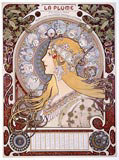| | |
| |
4 Nëntor 2007 08:37 |
| | encantado IS wrong. you have to *translate*, not to *adapt* to your language. the translation is "se bueno conmigo".  |
| |
4 Nëntor 2007 11:46 |
| | Could you tell us what this Japanese text means and in which context it is used? Thank you. CC: IanMegill2 |
| |
4 Nëntor 2007 12:02 |
| | Hi guilon! 
The problem here is that there are two ways of approaching this translation:
- one would be the literal translation, which is:
Please be nice to me.
The problem is, no native speaker would ever say that upon meeting another for the first time. We usually say
How do you do? Nice to meet you.
or some such phrase. Japanese people say
Hajimemashite. Dôzo yoroshiku.
in the same situation, but the literal translation of this would be
It's the first time. Please be kind to me.
! 
- So the other way of translating it would not be au pied de la lettre but situational, i.e. what would a native speaker of English say in exactly the same case when meeting someone for the first time? And in this case, Cisa is right, it would be some version of
Nice to meet you
or
I look forward to getting to know you better
or
I look forward to doing business with you
or
...
When our two languages are so radically different, I usually prefer the situational "mapping" of the English phrase onto the Japanese one myself, when I work as a professional interpreter here in Japan.
I suggest putting the "situational" translation in the main Translation field, and the literal translation in the Remarks field. (That's what I've been doing up till now with my translations from Japanese and Chinese.)
Ref: this translationCC: guilon |
| |
4 Nëntor 2007 12:24 |
| | Thank you very much, Ian. As I suspected, Cisa's translation was perfect. This translation has been a real pain in the rear, it is about time to accept it, please go ahead, Pirulito. CC: Cisa pirulito |
| |
4 Nëntor 2007 14:57 |
| 
CisaNumri i postimeve: 765 | Miyabi,
I hate word-to-word translations! If you stick to this, then you´ll get very weird translations sometimes. If you have a little experience in translation, then you know what I mean. Idiomatic expressions, non-existing structures in your language etc.
have a nice day, Cisa |
| |
4 Nëntor 2007 14:58 |
| 
CisaNumri i postimeve: 765 | Thanks for accepting, guys! 
Thanks for your cooperation, Ian!  |
| |
4 Nëntor 2007 17:39 |
| | My apologies, Cisa! 
You were right all the time; just I sometimes hate polemics, and this maked me nuts...  CC: Cisa CC: Cisa |
| |
4 Nëntor 2007 23:07 |
| | My pleasure, Cisa!  Keep up the good work in your studies of this CRAZY language!
Keep up the good work in your studies of this CRAZY language!  CC: Cisa CC: Cisa |
| |
5 Nëntor 2007 02:20 |
| | "Encantado" should be translated as "Charmed," "Pleased to meet you," or (very literally) "Enchanted" in English. The note below it--"Literally means Que seas bueno conmigo" should be translated as "That's really good for me," "That would be great," etc. |
| |
7 Nëntor 2007 02:31 |
| | La parte de mucho gusto esta bien, pero es mas o menos asi: 1.- Te presento a Sara. R. Encantado (Un placer) |
| |
8 Nëntor 2007 12:13 |
| | La traducció "que seas bueno conmigo" potser sà que seria bona però crec que no és un sinònim de "encantado" ni "mucho gusto". Jo ho traduiria com "por favor, se bueno conmigo" |
| |
9 Nëntor 2007 14:04 |
| | A mon sens, cela signifie plus "enchanté" lors d'une présentation entre deux personnes, c'est une formule de politesse de base. |
| |
11 Nëntor 2007 13:57 |
| | |
| |
13 Nëntor 2007 01:36 |
| | Solo digo que está incorrecta la traducción del sentido literal. Las dos otras estan correctas. ENCANTADO (no en portugués, pero sà en español, es como en italiano "PIACCERE", en francés "PLAISIR' (de te connaître), en inglés "GLAD TO SEE/MEET YOU" etc. No estoy de acuerdo con "QUE SEAS BUENO CONMIGO" ([I wish] you to be good to me). - Comprendido? |
| |
13 Nëntor 2007 08:43 |
| | Can you validate this translation please, pirulito?
People are still voting on it, but guilon and I have agreed that the translation is okay now... 
Please read the above (long!  ) discussion if you like!  CC: pirulito CC: pirulito |
| |
13 Nëntor 2007 21:25 |
| | |
| |
13 Nëntor 2007 22:47 |
| | |
| |
14 Nëntor 2007 04:43 |
| | Yay!  |
| |
14 Nëntor 2007 17:27 |
| 
CisaNumri i postimeve: 765 | Thanks a lot, guys! Doumo arigatou gozaimashita!  |
| |
15 Nëntor 2007 02:09 |
| | I suppose "Domou arigatou" means"thank you very much", does it? That makes me think of that 1983 year when we singed along domo arigato mr roboto. I was 12 back then, You weren't even born, Cisa!!! Oh my gosh!!! CC: Cisa |

 Kjo kërkesë për përkthim është "Vetëm kuptimi".
Kjo kërkesë për përkthim është "Vetëm kuptimi".
 Kjo kërkesë për përkthim është "Vetëm kuptimi".
Kjo kërkesë për përkthim është "Vetëm kuptimi".